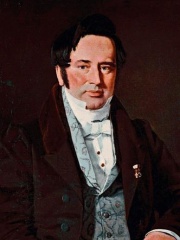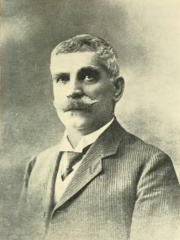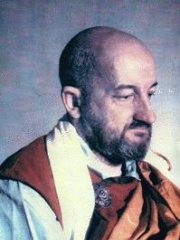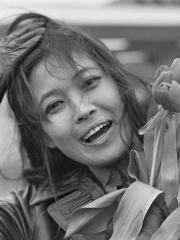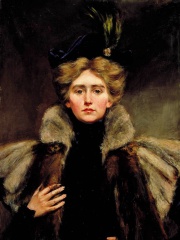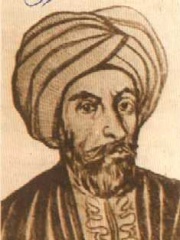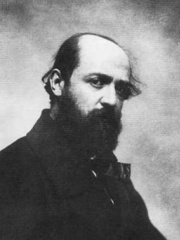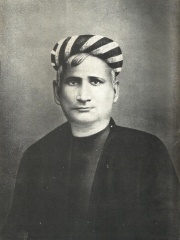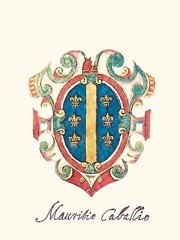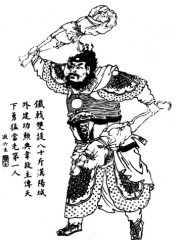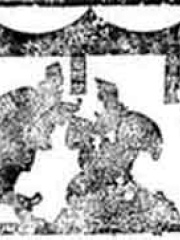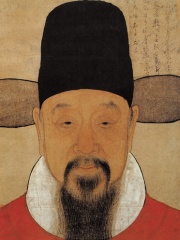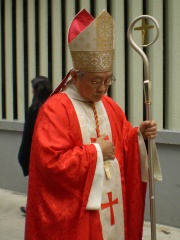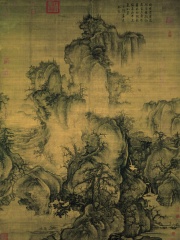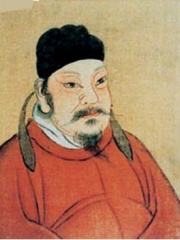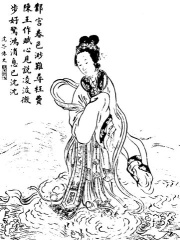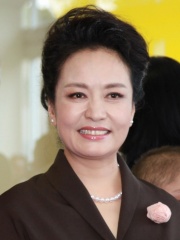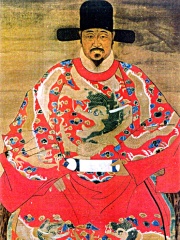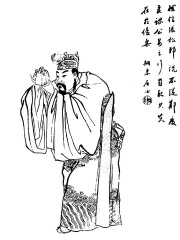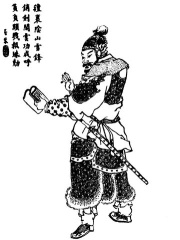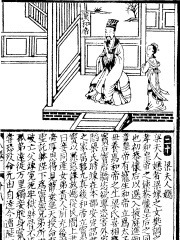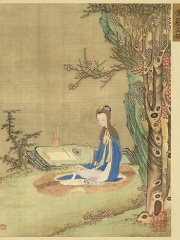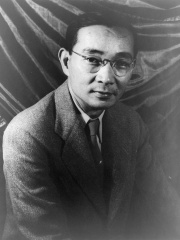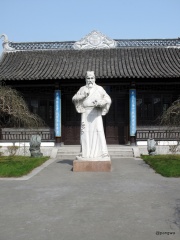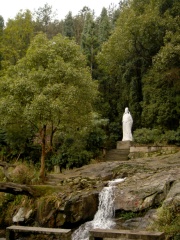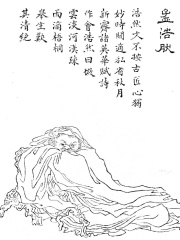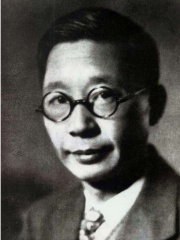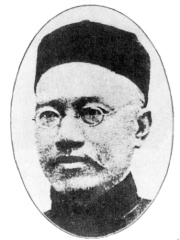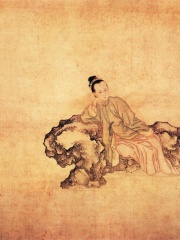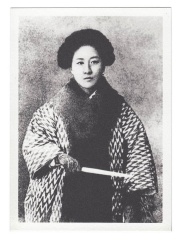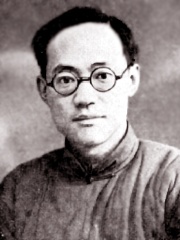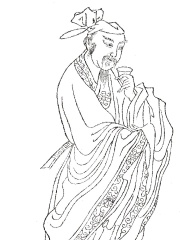Writer
Lu Yu
733 - 804
EN.WIKIPEDIA PAGE VIEWS (PV)
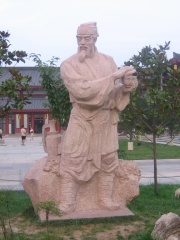
 Lu Yu
Lu Yu
Lu Yu (simplified Chinese: 陆羽; traditional Chinese: 陸羽; pinyin: Lù Yǔ; 733–804) or Lu Ji (陆疾), courtesy name Jici (季疵) was a Chinese tea master and writer. He is respected as the Sage of Tea for his contribution to Chinese tea culture. He is best known for his monumental book The Classic of Tea, also known as Cha Ching/Cha Jing (simplified Chinese: 茶经), the first definitive work on cultivating, making and drinking tea. Read more on Wikipedia
His biography is available in 24 different languages on Wikipedia. Lu Yu is the 1,325th most popular writer (down from 1,264th in 2024), the 354th most popular biography from China (up from 358th in 2019) and the 28th most popular Chinese Writer.
Memorability Metrics
Page views of Lu Yu by language
Among Writers
Among writers, Lu Yu ranks 1,325 out of 7,302. Before him are Adam Oehlenschläger, Ivan Vazov, Lobsang Rampa, Polyaenus, Emmanuelle Arsan, and Natalie Clifford Barney. After him are Abu Tammam, Samuel R. Delany, Henri Murger, Bankim Chandra Chatterjee, Widukind of Corvey, and Walter M. Miller Jr..
Most Popular Writers in Wikipedia
Go to all RankingsAdam Oehlenschläger
1779 - 1850
HPI: 66.25
Rank: 1,319
Ivan Vazov
1850 - 1921
HPI: 66.25
Rank: 1,320
Lobsang Rampa
1910 - 1981
HPI: 66.23
Rank: 1,321
Polyaenus
101 - 180
HPI: 66.22
Rank: 1,322
Emmanuelle Arsan
1932 - 2005
HPI: 66.22
Rank: 1,323
Natalie Clifford Barney
1876 - 1972
HPI: 66.22
Rank: 1,324
Lu Yu
733 - 804
HPI: 66.22
Rank: 1,325
Abu Tammam
788 - 846
HPI: 66.21
Rank: 1,326
Samuel R. Delany
1942 - Present
HPI: 66.20
Rank: 1,327
Henri Murger
1822 - 1861
HPI: 66.18
Rank: 1,328
Bankim Chandra Chatterjee
1838 - 1894
HPI: 66.16
Rank: 1,329
Widukind of Corvey
925 - 980
HPI: 66.15
Rank: 1,330
Walter M. Miller Jr.
1923 - 1996
HPI: 66.12
Rank: 1,331
Contemporaries
Among people born in 733, Lu Yu ranks 1. After him is Emperor Junnin. Among people deceased in 804, Lu Yu ranks 2. Before him is Alcuin. After him is Giovanni Galbaio.
Others Born in 733
Go to all RankingsOthers Deceased in 804
Go to all RankingsAlcuin
RELIGIOUS FIGURE
735 - 804
HPI: 73.89
Rank: 1
Lu Yu
WRITER
733 - 804
HPI: 66.22
Rank: 2
Giovanni Galbaio
POLITICIAN
800 - 804
HPI: 59.24
Rank: 3
In China
Among people born in China, Lu Yu ranks 354 out of 1,610. Before him are Dian Wei (150), Duke Huan of Qi (-800), Xu Guangqi (1562), Joseph Zen (1932), Guo Xi (1020), and Huo Qubing (-140). After him are Lady Zhen (183), Peng Liyuan (1962), Qi Jiguang (1527), Liu Zhang (200), Deng Ai (197), and Emperor He of Han (79).
Others born in China
Go to all RankingsDian Wei
POLITICIAN
150 - 197
HPI: 66.32
Rank: 348
Duke Huan of Qi
POLITICIAN
800 BC - 643 BC
HPI: 66.31
Rank: 349
Xu Guangqi
MATHEMATICIAN
1562 - 1633
HPI: 66.30
Rank: 350
Joseph Zen
RELIGIOUS FIGURE
1932 - Present
HPI: 66.29
Rank: 351
Guo Xi
PAINTER
1020 - 1090
HPI: 66.28
Rank: 352
Huo Qubing
POLITICIAN
140 BC - 117 BC
HPI: 66.24
Rank: 353
Lu Yu
WRITER
733 - 804
HPI: 66.22
Rank: 354
Lady Zhen
COMPANION
183 - 221
HPI: 66.13
Rank: 355
Peng Liyuan
SINGER
1962 - Present
HPI: 66.10
Rank: 356
Qi Jiguang
MILITARY PERSONNEL
1527 - 1588
HPI: 66.10
Rank: 357
Liu Zhang
POLITICIAN
200 - 219
HPI: 66.09
Rank: 358
Deng Ai
MILITARY PERSONNEL
197 - Present
HPI: 66.08
Rank: 359
Emperor He of Han
POLITICIAN
79 - 106
HPI: 66.07
Rank: 360
Among Writers In China
Among writers born in China, Lu Yu ranks 28. Before him are Cai Yan (177), Lin Yutang (1895), Shi Nai'an (1296), Lu You (1125), Meng Haoran (690), and Lao She (1899). After him are Yan Fu (1854), Li Qingzhao (1084), Qiu Jin (1875), Ba Jin (1904), Liu Cixin (1963), and Du Mu (803).
Cai Yan
177 - 250
HPI: 67.04
Rank: 22
Lin Yutang
1895 - 1976
HPI: 67.03
Rank: 23
Shi Nai'an
1296 - 1372
HPI: 66.84
Rank: 24
Lu You
1125 - 1210
HPI: 66.71
Rank: 25
Meng Haoran
690 - 740
HPI: 66.67
Rank: 26
Lao She
1899 - 1966
HPI: 66.65
Rank: 27
Lu Yu
733 - 804
HPI: 66.22
Rank: 28
Yan Fu
1854 - 1921
HPI: 66.02
Rank: 29
Li Qingzhao
1084 - 1155
HPI: 65.96
Rank: 30
Qiu Jin
1875 - 1907
HPI: 65.96
Rank: 31
Ba Jin
1904 - 2005
HPI: 65.93
Rank: 32
Liu Cixin
1963 - Present
HPI: 65.66
Rank: 33
Du Mu
803 - 852
HPI: 65.57
Rank: 34
